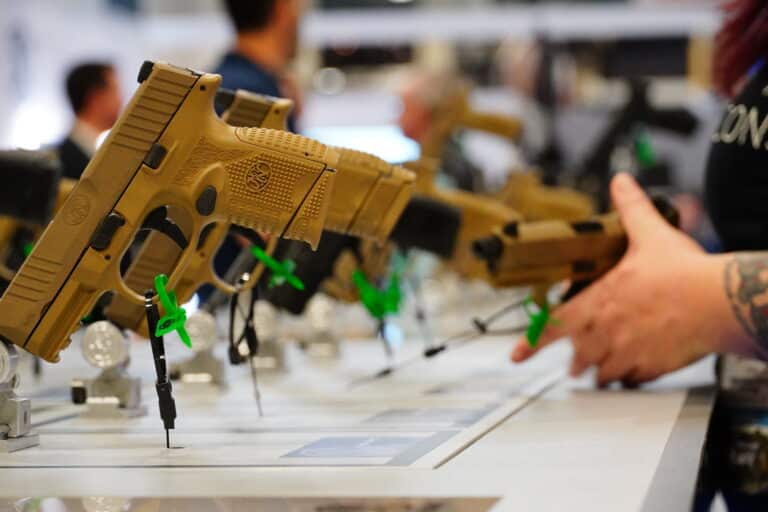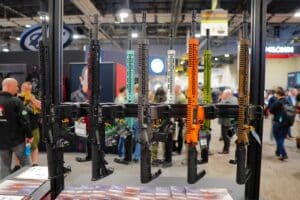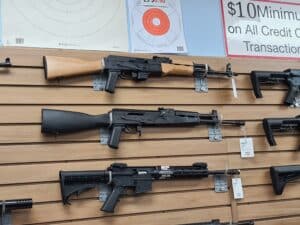Gun-control supporters can count the Centennial State as one of their few bright spots from election night.
Colorado voters officially approved Proposition KK by a margin of 54.2 percent to 45.8 percent. With 73 percent of the vote recorded, the Associated Press called the race early Wednesday morning. The vote will impose a new 6.5 percent state-level excise tax on firearm and ammunition sales, with the revenue earmarked to fund crime victim services.
The outcome of the vote marked a rare win for gun-control advocates Tuesday, as the movement’s preferred candidates failed to retain control of the White House and the US Senate. With little focus on gun policy in most of the top 2024 races, the referendum provides some of the only direct evidence for how guns played as an issue in the election–albeit in a state that has trended bluer over the past decade. The only gun-related measure to appear on the ballot anywhere in the nation, Proposition KK’s passage will make Colorado just the second state to adopt a state-level excise tax on guns and ammo.
The measure was inspired by California’s first-in-the-nation policy and was referred to the ballot earlier this year by the state legislature’s Democratic majority. Under the Colorado Constitution’s Taxpayer’s Bill of Rights, all proposed tax increases must first be approved by a majority vote of the state before they can take effect.
Colorado House Majority Leader Monica Duran (D.), the prime sponsor of the bill that became Proposition KK, celebrated the outcome.
“Tonight really is a full circle moment for me; without the support from crime victim services as a young single mother trapped in an abusive relationship, there is no way I’d be here today celebrating the passage of Prop KK,” she said in a statement. “As federal dollars dwindle, Coloradans made the right choice this evening to step up and help fill the funding gaps in crime victim services.”
Currently, gun and ammunition sales are only subject to state and local sales taxes, plus a federal excise tax of between 10 and 11 percent to fund conservation efforts under the Pittman-Robertson Act. The new tax is set to take effect starting April 1, 2025.
Under the measure, most firearm dealers, gun manufacturers, and ammunition sellers in Colorado with more than $20,000 in annual sales will have to pay the new tax on qualifying sales, which includes any firearm, “firearm precursor part,” or ammunition. Those costs are widely expected to be passed on to consumers. Gun purchases by law enforcement agencies, as well as individual police and active-duty military officers, are exempt.
The 6.5 percent tax is projected to generate $39 million a year, the bulk of which is set to fund new grants for crime victim services provided by nonprofits and local governments. Some of the money would also go to mental and behavioral health services for veterans and at-risk children.
Gun-rights advocates are expected to challenge the measure in court. A lawsuit filed by the NRA against California’s tax is still ongoing.







One Response
I wonder if this tax would apply to reloading supplies and equipment.